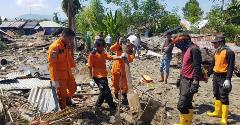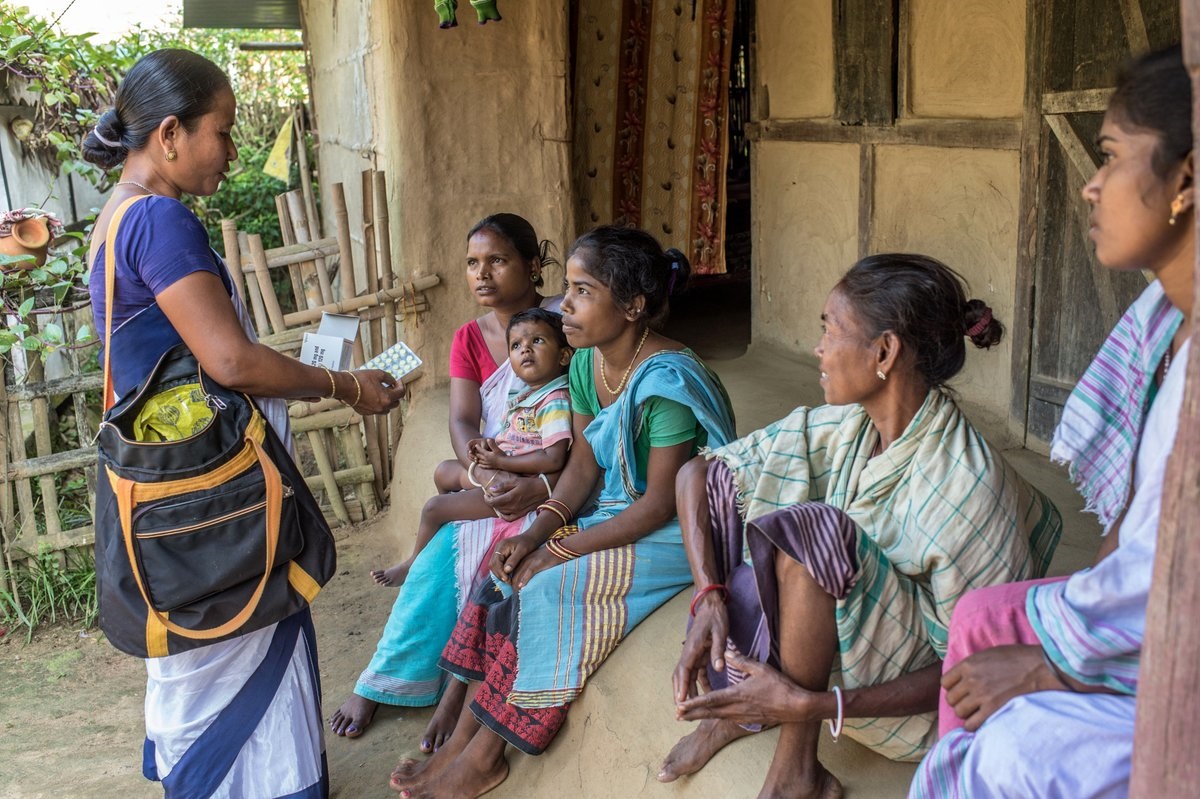Clinical management of Severe Acute Respiratory infections (SARI) cases in non- Intensive Care Unit (ICU) settings: Post course evaluation
The COVID-19 pandemic has once again demonstrated the need to strengthen the clinical management component of pandemic/epidemic response which has often been ignored within pandemic preparedness and response plans. In recent months, it has been further aggravated by the high burden of COVID-19 cases with most countries in WHO’S South-East Asia Region (SEAR) experiencing surges. Given that countries have different resources and needs, they also experience difficulty in mobilizing clinical experts, through mechanisms such as the Global Outbreak and Response Network (GOARN) due to high global demand for pandemic response.
To address this gap, a pool of trainers has been identified to provide both virtual and in-country support to strengthen country capacity in clinical management. With this in mind, a regional virtual training was provided to a core group of physicians from Member states of the WHO’s SEA Region from 01 January–28 June 2021. The objective of this Training of Trainers (ToT) programme was to train a core group of physicians in clinical management of severe acute respiratory infections (SARI) including those due to COVID-19 in non- intensive care units (ICU) settings in SEA Region using WHO regional training modules. The regional team of trainers could be used for conducting training in their respective countries or mobilized for training in other countries as per country requests.
Thus, an 18-week training course was conducted online with participation of regional and international facilitators. Six months following the initiation of training, a course completion review was conducted on 22 September 2021 to evaluate activities implemented in the country settings by trainees and future plans discussed in order to provide effective ongoing support from WHO.
The review also attempted to understand overall benefits of the ToT approach and to evaluate areas where improvement was needed and thereafter to finalize a plan to address the same. Participants were asked to share their follow-up experiences with respect to their training implementation plans, post-course review feedback to SEARO, and next steps in countries, including identification of any immediate barriers to implementation of training activities, possible ways of how they can be overcome and identification of areas where assistance is needed from WHO.
The evaluation session was attended by the Regional Emergency Director, Programme Area Manager (Infectious Hazard Management) representing WHO’s South-East Asia regional Office, facilitators from the Integrated Management of Adolescent and Adult Illness (IMAI) Alliance and trainees from Bhutan, Indonesia, Nepal, and Sri Lanka. The evaluation meeting entailed seeking feedback from the newly trained facilitators with respect to their experience in using the SEARO-IMAI SARI tools.
Enumerating instances from how they contextualized the training, they provided valuable insights to serve as a guide for future use of materials which are now part of a long-term training strategy for pandemic preparedness and response in the work plan of the IHM unit. The overall feedback of trainees was positive in terms of content and relevance of the training to SEA Region countries.
Recommendations to further improve the training
- Provide more continuous training sessions i.e. 5 days in- person rather than virtual sessions weekly over months for better focus.
- Till a formal training course implementation is announced by Member countries, they can implement interventions and use informal disseminations within clinical teams to support junior doctors.
- Incorporate video- practical demonstrations during virtual sessions.
- Include Emergency Society of Physicians/Nurses in the core group of participants.
- Have shorter and more condensed training modules.
- Allow multi-country or country-focused district hospital training with regional support to commence in-person as feasible.
- Provide ongoing material updates and refresher courses and consider training delivery in the pre-service context.
Immediate next steps
SEA Region Office needs to ensure continuation of work to provide certificates to those who successfully completed the training; finalize and post training materials on IHM/WHE-SEARO website; follow -up with countries trained so far in the SEA Region to see if additional regional support is needed; to follow-up with Sri Lanka to explore the need for technical assistance that they once requested for adopting this regional training as part of the continuing medical education (CME) programme offered by the Sri Lanka Medical Council.
Dr Pushpa Ranjan Wijsinghe, Programme Area Manager, Infectious Hazard Management, WHO SEARO emphasized that clinical management will continue as a separate pillar and will include these trained facilitators in rosters to support roll-out of clinical training in the SEA Region. This Clinical Management regional training also appears in WHO’s workplan for the next biennium which commences from 01 January, 2022. Plans are already afoot to collaborate with Sri Lanka for adopting the course as a CME online training. Meanwhile the next post course evaluation and revalidation of certification will be taken up in the year 2023.
-isolation-and-treatment-center.tmb-1920v.jpg?Culture=en&sfvrsn=7508cbfe_1)







